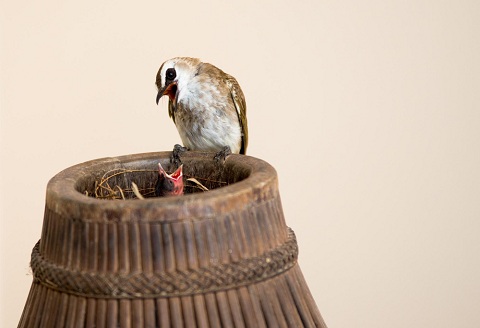Summer can be a challenging time for natural birds, requiring careful attention and care to ensure their well-being. In this guide, we’ll delve into the best practices for caring for natural birds during the hot summer months.
Summer brings about significant changes in bird behavior. Understanding these changes is crucial to providing optimal care. During this season, birds engage in increased foraging activities, mate selection, and nest building. Their dietary needs shift, emphasizing the importance of a balanced diet rich in nutrients.
Natural birds are those that live and thrive in their natural habitats, such as forests, grasslands, and wetlands. These birds are not domesticated and rely on their instincts for survival.
Types of natural birds
There are various types of natural birds, including songbirds, raptors, waterfowl, and game birds. Each type has specific characteristics and requirements for optimal health.
Summer Care Tips
Providing shade and shelter

During summer, it’s crucial to provide natural birds with ample shade and shelter from the sun’s intense heat. This can include trees, shrubs, and birdhouses strategically placed in their environment.
Severe storms can often occur in this summer season, in most cases the bird’s nests are broken in these storms and the baby birds often die. In that case, you can make an earthen pot or a wooden box or an artifical bird’s nest and tie it on the tree. It will keep the birds safe and a little better from the heat.
Hydration is key
Natural birds need access to clean and fresh water at all times. Provide bird baths or shallow water containers for them to bathe and drink from regularly.
Proper nutrition
Offer a balanced diet suitable for the specific species of natural birds you are caring for. This may include seeds, fruits, vegetables, and protein sources like insects or mealworms.
Water and foods
You can keep some water in a large flat container on the roof of your house or in a shady place. You can also keep some food and a flat container of water under a tree. Birds can come and drink water along with foods and also rest on the tree.
Avoiding heat stress
Monitor birds for signs of heat stress, such as panting, lethargy, or holding wings away from the body. Ensure they have enough airflow and ventilation in their living spaces.
Bathing and Grooming
Importance of bathing

Bathing helps natural birds maintain healthy plumage and remove dirt and parasites. Provide shallow water containers or misting areas for birds to bathe in.
Grooming techniques
Avoid over-grooming birds as it can damage their feathers. Provide access to natural grooming materials like branches or rough surfaces for birds to groom themselves.
Health Monitoring
Signs of heat-related issues
Be vigilant for signs of heat-related issues such as dehydration, overheating, or sunburn. If a bird is sitting under a tree in this hot weather, bring the bird home quickly give it saline water and keep it under the fan. If the condition does not improve, consult a veterinarian quickly.
Regular check-ups
Schedule regular check-ups with a certified avian veterinarian to ensure your natural birds are in good health and receive any necessary vaccinations or treatments.
Safe Handling Practices
Gentle handling techniques
Handle natural birds with care and gentleness to minimize stress and injuries. Avoid sudden movements or loud noises that can startle them.
Understanding behavior cues
Learn to interpret the body language and vocalizations of natural birds to understand their needs and emotions better.
Socialization and Interaction
Importance of socialization
Natural birds thrive on social interaction with their own species and human caregivers. Provide opportunities for socialization through playtime and companionship.
Engaging activities
Offer stimulating and enriching activities like foraging toys, puzzles, and interactive games to keep natural birds mentally and physically active.
Creating a Bird-Friendly Environment

A bird-friendly environment is essential for their well-being. Planting native trees and shrubs provides natural shelter and food sources, such as seeds and insects. Avoiding the use of pesticides and chemicals in your garden preserves a safe habitat for birds and prevents harmful exposure.
Avoiding toxic substances
Keep natural bird habitats free from toxic substances such as pesticides, chemicals, and harmful plants that can be harmful if ingested.
Maintaining clean surroundings
Regularly clean and disinfect bird cages, perches, and feeding areas to prevent the spread of diseases and parasites.
FAQs about Caring for Birds Naturally in Summer
Natural birds are adapted to their environments, but providing shade is essential to prevent heat stress.
Water should be changed daily to ensure cleanliness and freshness for birds.
Move the bird to a cooler area with adequate airflow and offer water for hydration. If symptoms persist, consult a veterinarian.
Yes, certain foods like chocolate, avocado, and caffeine can be toxic to birds and should be avoided.
While natural birds can learn to recognize and trust their caregivers, extensive training for complex behaviors may not be suitable for all species.
Conclusion
Caring for natural birds in summer requires a combination of environmental awareness, proper nutrition, and attentive health monitoring. By following these tips and guidelines, you can ensure that your feathered friends stay healthy and happy throughout the season.